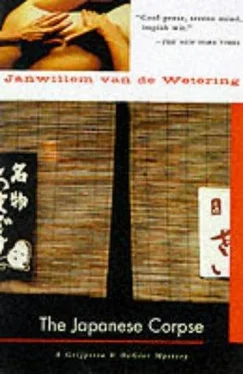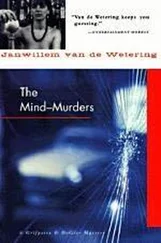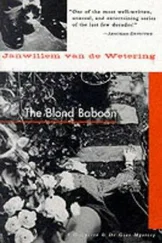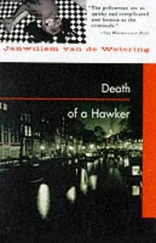Janwillem De Wetering - The Japanese Corpse
Здесь есть возможность читать онлайн «Janwillem De Wetering - The Japanese Corpse» весь текст электронной книги совершенно бесплатно (целиком полную версию без сокращений). В некоторых случаях можно слушать аудио, скачать через торрент в формате fb2 и присутствует краткое содержание. Жанр: Полицейский детектив, на английском языке. Описание произведения, (предисловие) а так же отзывы посетителей доступны на портале библиотеки ЛибКат.
- Название:The Japanese Corpse
- Автор:
- Жанр:
- Год:неизвестен
- ISBN:нет данных
- Рейтинг книги:3 / 5. Голосов: 1
-
Избранное:Добавить в избранное
- Отзывы:
-
Ваша оценка:
- 60
- 1
- 2
- 3
- 4
- 5
The Japanese Corpse: краткое содержание, описание и аннотация
Предлагаем к чтению аннотацию, описание, краткое содержание или предисловие (зависит от того, что написал сам автор книги «The Japanese Corpse»). Если вы не нашли необходимую информацию о книге — напишите в комментариях, мы постараемся отыскать её.
The Japanese Corpse — читать онлайн бесплатно полную книгу (весь текст) целиком
Ниже представлен текст книги, разбитый по страницам. Система сохранения места последней прочитанной страницы, позволяет с удобством читать онлайн бесплатно книгу «The Japanese Corpse», без необходимости каждый раз заново искать на чём Вы остановились. Поставьте закладку, и сможете в любой момент перейти на страницу, на которой закончили чтение.
Интервал:
Закладка:
\\\\\ 11 /////
The Tokaido Express was racing along noise-lessly on its endless gleaming twin tracks, and loudspeakers in all carriages were respectfully informing the honorable passengers that Mount Fuji, Japan's highest and holiest mountain, would soon appear and could be viewed through the windows on the right. The message was repeated in English, and the commissaris looked up at the little box above the sliding door, as if he were amazed that it could say something understandable. He was getting used to the all-encompassing riddle around him; the signs written in three different scripts, all of them meaningless; the language in which he couldn't recognize a single word; the utter foreignness of the farmhouses and temples, set in the lush green fields or built on hilltops; the outlandishness of the farmworkers wearing vast straw hats and coats made of dry leaves or stalks, and who sheltered under oilcloth parasols, decorated with huge diagrams. He had never been in the Far East before and felt himself wholly unprepared for the jumble of new images which were forced on his brain, asking for explanation and translation. But he had passed the first stage of bewilderment, and his mind now seemed ready to accept the strangeness and even to rest in it, as a show put up for his entertainment and imagination. He was no longer intent on trying to understand, but was allowing his mind to receive the impressions and to enjoy the colors and shapes and sounds. And now the loudspeaker had said something he could understand without bothering to translate: Mount Fuji.
He had seen photographs of the mountain, on postcards and in picture books. Not a word was said in the train when Fuji-san showed itself. The passengers were paying their respects. Eyes widened, faces smiled in wonder. The commissaris bowed his head slightly, without taking his eyes off the mountain. He agreed. The mountain was beautiful, and suddenly he felt a wave of love for the hundred million people of these islands and their childlike ability to enjoy, to play the supreme game, to accept and admire the beauty of the creation and to try to live in harmony with it.
He had been appalled by the noise and glare of the Ginza, the thousands of yelling shops of Tokyo, pushing their wares, by the throngs of prostitutes and young toughs, by the immense advertisements, the raucous sounds of jukeboxes and amplified rock music, the continuous silly metal clang of pinball machines. He had undergone the strong impression of having been suddenly transported into hell, but now he saw another and, seemingly, stronger side of the local character. The people in the next two compartments whose heads he could see through glass partitions, had changed from mechanical toys into gazing children, lost in their dream of the white-capped shape on the horizon that embodied the very essence of their minds, the minds that had created the temples with their sloping roofs, sharply uplifted at the ends, and the artfully pruned pine trees crowning large boulders and rocks, the moss gardens and all the other outflows of the creativity with which they had adorned their empire of islands.
Dorin was contemplating the mountain too. He had been talking when the loudspeakers interrupted him and he had stopped in mid-sentence. The lines of his face softened and the sparkle in his jet-black eyes changed into a gleaming light as he gazed at the mountain so far away that, in spite of the train's speed, it moved almost imperceptibly. After a few minutes it disappeared, but it would show itself again, Dorin said, and would keep on doing so at intervals for the next hour or so, as the train entered and left tunnels and wound its way around lesser mountains.
"You mentioned the Zen master just now," the commissaris reminded him.
Dorin laughed. The commissaris and de Gier waited, but Dorin was looking at a spot between them.
"That's your answer," de Gier asked, "laughing?"
"It's a proper Zen answer," Dorin said, screwing his face into an expression of humility. "They always laugh, or shout something ununderstandable, or beat you on the head. Zen masters do that."
"What are they masters in?" de Gier asked. "Buddhism or something?"
"Zen is a Buddhist sect, a method to gain insight. Zen masters are supposed to have complete insight."
"How did they get it?"
Dorin spread his hands. "Who knows? Through meditation, I suppose, because that seems to be the monks' main activity; sitting quietly in a large hall and staring at the floor. They concentrate on what the master has told them, and every now and then they go and see the master to show him what they have done with it. Before I got my present job I had to go in for all sorts of training and I was also required to spend three months in a Zen monastery, somewhere up North, in the mountains. I dressed like the monks and they shaved my head. It was a difficult time, more difficult than the commando training. I would rather jump from an airplane to parachute into a jungle than spend a week in a meditation hall. But I suppose it was good for me. Everything looked very different when I got back."
"How?"
"More real. Zen masters use everyday life as the subject of their teaching. A lot of mystics try to get away from everyday life, from the normal routine, but with Zen everything is upside down. And Zen teachers never moralize. That's what I liked most about the training. They expect you to be able to sit still and concentrate and find your own answers. They don't talk at you from an outside point of view, tell you what is good and what isn't. I was never impressed by morals myself, maybe because I grew up in America, but was taken to Japan all the time by my parents. I lived in two worlds, and what was good in the one was bad in the other. In Japan it is proper to burp after a meal; in America you get slapped if you do it."
"The Zen master didn't care about the stolen art business," the commissaris said. "He said the junk should be spread around, or so I understood from what the sergeant told me."
"Sure," Dorin said. "Why not? My father used to take me to Kyoto and we had to ask permission to see a sculpture or a painting, or even a rock garden. Even as a child I thought the priests shouldn't be allowed to control national treasures. The Western system is better. Museums, open to everybody."
"And the drugs?" the commissaris asked. "Do you care about drugs being spread around?"
Dorin had been smiling, but now his face closed. "Yes," he said. "I care about the drugs. The yakusa are helping the Chinese to get even. Once the Western nations poisoned China with opium; now it is the other way around."
"How about Japan itself? Who sells the drugs here? You must have a drug problem. I saw many addicts in Tokyo."
"Yakusa," Dorin snapped. "That's why I volunteered for this assignment."
A train stewardess came in with a tray of coffee in paper cups, chirruping gaily. "Ko-hi. Ko-hi."
"Arigato, thank you," the commissaris and de Gier said simultaneously. Dorin was smiling again.
"You volunteered?" the commissaris asked.
"When I heard about the heroin. Heroin dealers are hard to catch. Their profits are so high that they can buy almost everybody. If the yakusa hadn't been stupid enough to get into the art trade too, they would be invulnerable. But they are touching national treasures and are irritating the government. If we had to approach them from the heroin angle, we would have to leave the matter to the police and I know what would happen after a while."
"What would happen?"
"Nothing. Perhaps the police would be allowed to catch a few little fellows, scapegoats, silly men the yakusa want to get rid of, and that would be the end of it. But with famous statues being stolen we've got it made. I have been given a free hand. I can move in commandos if I want to. With a bit of luck we may be able to raze the daimyo's castle to the ground. All the Supreme Court is asking for is proof and witnesses. They won't worry too much about the methods used during the investigation."
Читать дальшеИнтервал:
Закладка:
Похожие книги на «The Japanese Corpse»
Представляем Вашему вниманию похожие книги на «The Japanese Corpse» списком для выбора. Мы отобрали схожую по названию и смыслу литературу в надежде предоставить читателям больше вариантов отыскать новые, интересные, ещё непрочитанные произведения.
Обсуждение, отзывы о книге «The Japanese Corpse» и просто собственные мнения читателей. Оставьте ваши комментарии, напишите, что Вы думаете о произведении, его смысле или главных героях. Укажите что конкретно понравилось, а что нет, и почему Вы так считаете.












